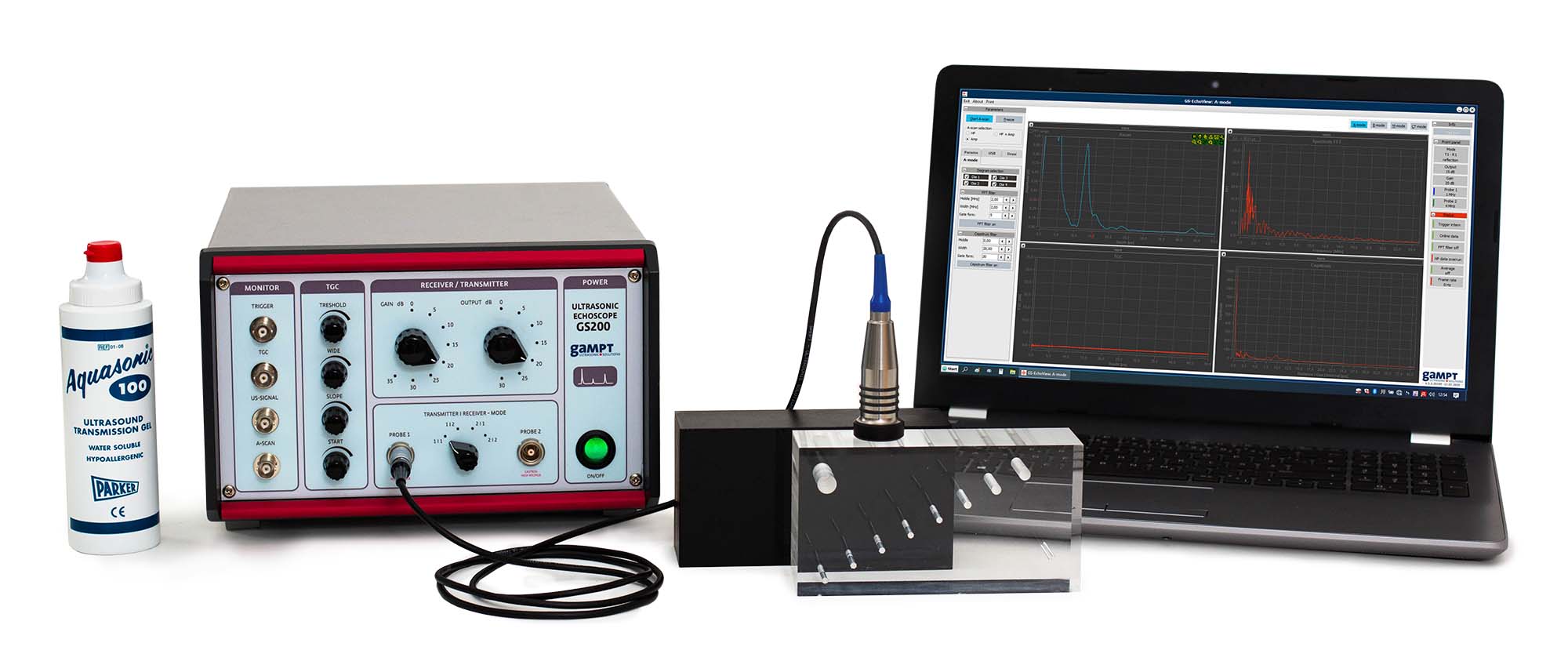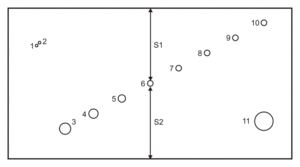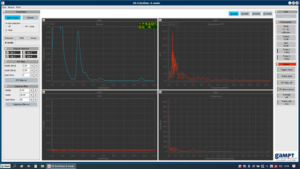Article No. VK-PHY01
PHY01 Basics of pulse echo method (A-Scan)
Examination of a sample with built-in discontinuities by means of the pulse echo method
A sample with built-in discontinuities is examined by means of the pulse echo method. Amplitude scans are carried out from different sides of the sample. The echo signals imaged in the recorded A-Scan images are examined and analysed.
Keywords: Propagation of ultrasonic waves, time of flight of sound, sound velocity, characteristic acoustic impedance, reflection and transmission, pulse echo method, ultrasonic A-Scan
The pulse echo method forms the basis of many imaging methods in non-invasive medical diagnostics and non-destructive testing. In this method, electrical pulses are transformed into mechanical vibrations by an ultrasonic probe. These are coupled into the sample being examined and pass through it as sound waves. Waves that are reflected on discontinuities return to the probe and are converted back into an electrical signal. The chronological recording of the amplitude of this signal (amplitude scan) is graphically imaged as a so-called ultrasonic A-Scan image. Based on the reflection echoes in the A-Scan image, times of flight can be determined, the sound velocity in the material calculated and discontinuities in the sample detected.
The screen shot of the measurement software shows a typical ultrasonic A-Scan image of the test block. One can observe: the initial echo, the echo of a discontinuity and the bottom echo at the material-air boundary at the opposite end of the sample. The value to be determined for the sound velocity in the test block (acrylic) is around 2700 m/s. From the ascertained sound velocity and the measured times of flight of the reflection echoes of the discontinuities, their depth in the sample can be established.
| Art.no. | Description |
|---|---|
| 10400 | Ultrasonic echoscope GS200 |
| 10151 | Ultrasonic probe 1 MHz |
| 10201 | Test block (transparent) |
| 10204 | – optional: Test block (black) |
| 70200 | Ultrasonic gel |


